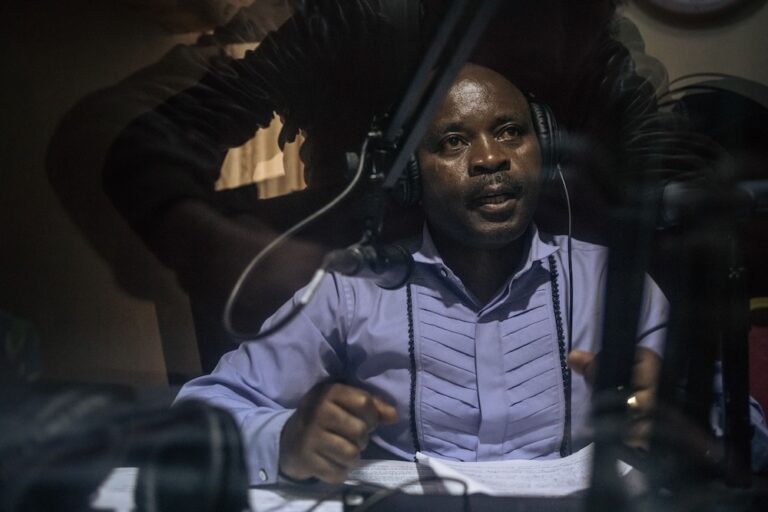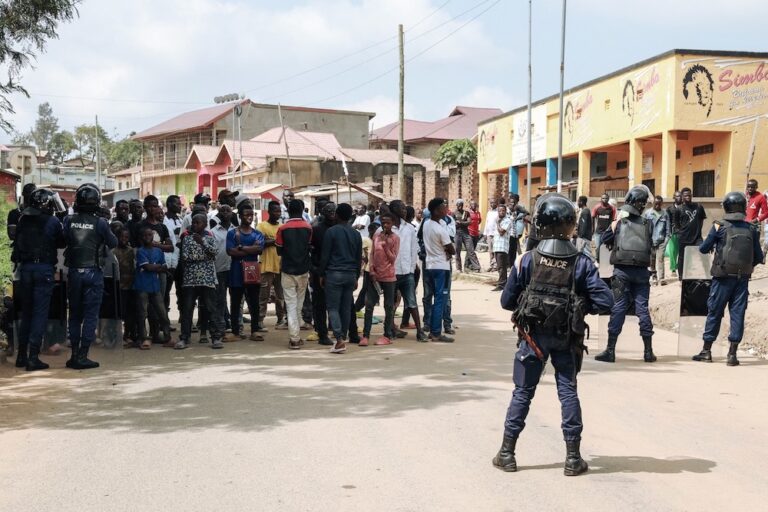(JED/IFEX) – Journalist Mbuyi Tshibwabwa, who is also known as “Mbote ya Kabambi” (“The Big Hello”), has been in hospital since 22 August 2004 after being severely beaten at a military court in Goma, North Kivu province’s main city, eastern Democratic Republic of Congo. Tshibwabwa is a military journalist and host of the local television […]
(JED/IFEX) – Journalist Mbuyi Tshibwabwa, who is also known as “Mbote ya Kabambi” (“The Big Hello”), has been in hospital since 22 August 2004 after being severely beaten at a military court in Goma, North Kivu province’s main city, eastern Democratic Republic of Congo. Tshibwabwa is a military journalist and host of the local television show “Armée et peuple” (“The Army and the People”). The attack was ordered by the 8th Military District commander, General Obedi Rwibasira. “Armée et peuple” is broadcast nightly on the Congolese public broadcaster’s (Radiotélévision Nationale Congolaise, RTNC) Goma station.
According to 8th Military District official sources whom JED was able to contact on the afternoon of 1 September, Tshibwabwa has been accused of “military indiscipline” and “refusal to follow orders”. The journalist was assigned by his superiors to accompany the district commander on a “sensitisation” mission to North Kivu’s interior. Tshibwabwa refused the assignment because he had not been reimbursed for expenses from previous missions.
Following his refusal, the journalist was arrested on 16 August and remanded in custody at the Goma military court where he was savagely beaten. He was released on 18 August. On 22 August he was admitted to a Goma military hospital.
In a telephone conversation with JED from his hospital bed, Tshibwabwa said his health has improved slightly, but he continues to experience severe chest pains and must undergo a chest x-ray. As for the motive for his arrest, the journalist said that the trouble began when he devoted one of his open phone-in shows to security issues in Goma. Callers to the show reportedly accused the 8th District commander of being the source of the city’s “climate of insecurity”.


